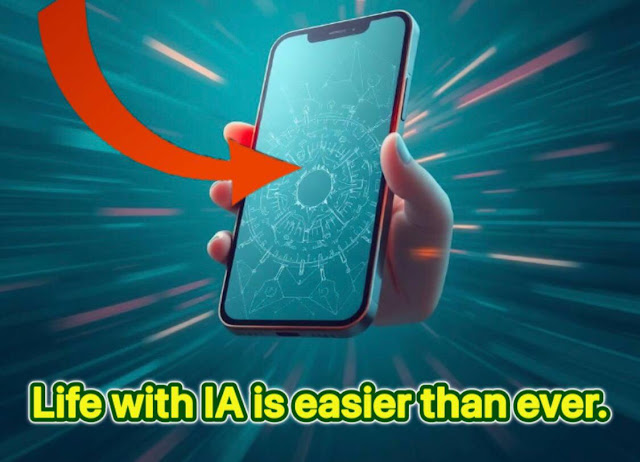AI-Integrated Smartphones: The Next Step in Personal Assistants
Artificial Intelligence (AI) has transitioned from a futuristic concept to an integral component of our daily lives, particularly within the realm of smartphones. The convergence of AI and mobile technology has birthed advanced personal assistants, revolutionizing how we interact with our devices. This article delves into the evolution, current landscape, and future prospects of AI-integrated smartphones, emphasizing their role as personal assistants
The Evolution of Smartphone Personal Assistants
The journey of AI in smartphones began with the introduction of basic virtual assistants. Apple's Siri, launched in 2011, marked a significant milestone by enabling voice-activated commands and basic task management. Following suit, Google introduced Google Assistant, offering contextual understanding and integration with Google's suite of services. Samsung's Bixby and Huawei's Celia further expanded the diversity of AI assistants, each bringing unique features to cater to varying user preferences
Current Landscape of AI-Integrated Smartphones
In recent years, AI integration has transcended beyond virtual assistants, permeating various facets of smartphone functionality
AI algorithms analyze scenes in real-time, adjusting settings such as brightness, contrast, and saturation to capture optimal images. For instance, Google's Night Sight leverages AI to produce clear images in low-light conditions without a flash
Real-Time Language Translation
AI-powered translation tools facilitate seamless communication across languages, offering speech-to-speech and text-to-text translations. Google Translate's conversation feature exemplifies this by enabling bilingual conversations on the fly
User Behavior Prediction
AI learns user habits to anticipate actions, such as pre-loading frequently used apps or suggesting content aligned with interests, thereby enhancing device responsiveness and personalization
Augmented Reality (AR) Experiences
By understanding the environment, AI enables smartphones to accurately place virtual objects in real-world settings, enriching gaming and practical applications like virtual furniture placement
Biometric Authentication
AI enhances security through facial recognition and fingerprint sensors, adapting to changes in appearance to improve accuracy and speed over time. Apple's Face ID technology exemplifies this by recognizing users even with altered appearances
Battery Life Optimization
AI manages battery consumption by monitoring app usage and predicting patterns, adjusting power allocation to extend battery life without compromising performance. Huawei's EMUI operating system utilizes AI to optimize resource allocation based on user behavior
Health Monitoring
Smartphones equipped with AI can track health metrics such as steps taken, heart rate, and stress levels, providing insights and recommendations for a healthier lifestyle. The Apple Watch, paired with iPhone, uses AI to monitor health signals and suggest potential health issues
AI enhances connectivity by intelligently managing network preferences, ensuring optimal internet speeds and reliability. Google's Pixel phones use AI to connect to the best available Wi-Fi network and switch to cellular data when necessary
Customized Content and Advertisements
By analyzing user behavior, AI tailors content and ads to individual preferences, enhancing engagement and satisfaction. Spotify's personalized music recommendations are a testament to AI's capability in delivering customized content
Leading AI Assistants in the Market
Several AI assistants have emerged as frontrunners in the smartphone industry
Google's Gemini
Integrated into Samsung's latest smartphones, Gemini offers advanced AI capabilities, including deep integration with Google's services and a conversational interface. Its widespread distribution enhances its effectiveness through continuous user interaction
Apple's Siri
Renowned for its emphasis on privacy and security, Siri has been enhanced with "Apple Intelligence," integrating generative AI to provide personalized and contextual user interactions
Amazon's Alexa
Beyond its presence in smart home devices, Alexa's integration into smartphones allows users to perform tasks such as controlling smart home devices, playing music, and accessing third-party apps through voice commands
Samsung's Bixby
While initially limited in functionality, Bixby has evolved to offer features like call recording and transcription, AI-generated recipe suggestions based on available ingredients, and advanced audio editing capabilities
Huawei's Celia
Huawei's AI assistant leverages natural language processing and machine learning to understand and anticipate user needs, offering services such as voice-activated commands and personalized recommendations
Future Outlook: AI's Dominant Role in Smartphones
The trajectory of AI integration in smartphones indicates a future where AI-powered devices become ubiquitous. Huawei projects that AI smartphones will constitute 90% of the market by 2030, highlighting the anticipated dominance of AI in mobile technology. This evolution is expected to bring forth
AI will offer deeper customization, understanding user preferences to provide tailored experiences across applications and services
Seamless Integration
AI assistants will operate across multiple devices, creating a cohesive and interconnected user experience
Enhanced Security
Biometric authentication and AI-driven security measures will offer robust protection against unauthorized access and cyber threats
Proactive Assistance
AI will anticipate user needs, offering proactive suggestions such as reminders for meetings, traffic updates, or even health tips based on habits and activities



